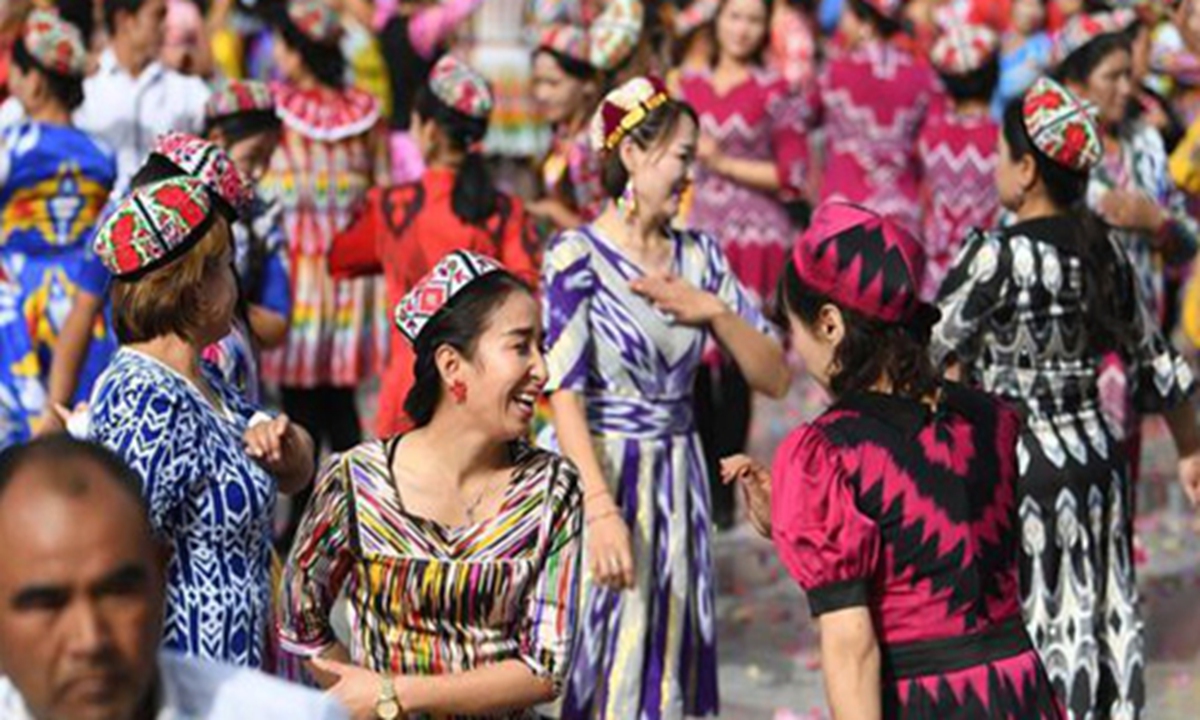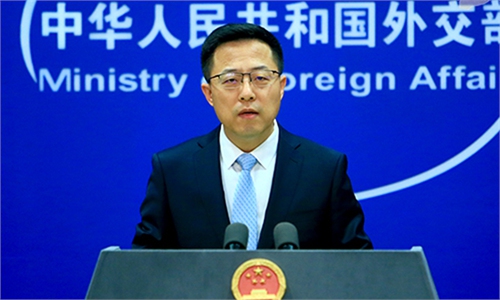Impact of EP’s resolution to smear China’s Xinjiang policies in question, serves as ‘political tool to win influence’

People attend a culture and tourism festival themed on Dolan and Qiuci culture in Awat County of Aksu Prefecture, northwest China's Xinjiang Uygur Autonomous region, Oct. 25, 2019. The festival kicked off recently in Aksu Prefecture. (Xinhua/Sadat)
"Genocide" is a term that should be defined in strict accordance with international laws, rather than used as a political tool, and most European countries are aware of this, Chinese experts warned, amid the European Parliament's recent effort to follow the US to hype the so-called genocide allegation in China's Xinjiang region following the "unsupervised" and "open" visit of the UN human rights chief to China.
The remarks came after the South China Morning Post (SCMP) reported on Tuesday that powerful European lawmakers are pushing to designate alleged human rights abuses against Uygurs and other ethnic Muslims in Xinjiang as "genocide" in a resolution set to reach the European Parliament (EP) this week.
The motion enjoys the support of four of the biggest parties in the parliament, which means it appears likely to succeed, the SCMP said.
The parties will enter negotiations on Tuesday to finalize the text of the urgent resolution, which will be debated on Wednesday and put to a vote on Thursday, according to the report.
A major background of the EP's move was the six-day visit of UN human rights chief Michelle Bachelet to China in late May. The visit was hyped by some Western media so that the EP certainly also wants to get involved in it, Cui Hongjian, director of the Department of European Studies at the China Institute of International Studies, told the Global Times on Tuesday.
"It is not surprising," Cui said. He explained that the EP has been promoting and hyping Xinjiang-related topics in recent years and showed a similar stance to the US as being anti-China has basically become a type of political correctness in the EP.
The move was also part of the EP's efforts to win more influence over other organizations in the EU, Cui noted.
However, it is still a question of how much practical influence the resolution could exert, experts noted.
If passed, it would affect European people's opinions of China and cause more difficulty in China's talks with Europe, especially talks over political and human rights issues, Cui said.
But when it comes to so-called genocide in Xinjiang, Cui said that he believes that most governments in Europe still hold a prudent attitude because they are clear that genocide should be defined in strict accordance with international laws, and it should neither be used as a political tool, nor a label to pin on whoever you do not like.
During Bachelet's visit to the Xinjiang region, she said she spoke directly with the most senior government officials and other interlocutors on key human rights issues, both in China and globally. But her statement that showcased her team's wide interactions with people from different sectors in China and progress in facilitating future exchanges between Beijing and Geneva seemed to have disappointed the US.
Meanwhile, anti-China forces attempting to use the visit to pin the allegation of "genocide" on China are now trying to deny Bachelet's visit and attacking China for "manipulating" her trip for "propaganda."
Such barefaced attacks on both the UN High Commissioner and China clearly show the international community who is trying to manipulate the Office of the UN High Commissioner, analysts said, noting that as allegations of "genocide" in Xinjiang are absolutely ludicrous for political purposes, neither Bachelet's visit nor visits by anyone else who upholds the truth will bring an end to the US' and anti-China forces' hypes of the issue.

